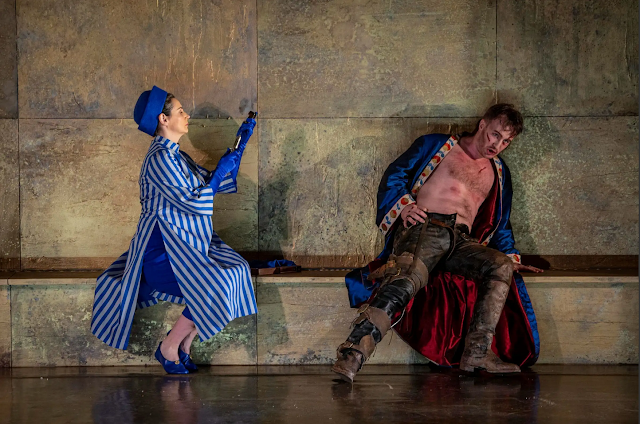 |
| Paul Mann |
British conductor Paul Mann is the principal guest conductor of Lviv National Philharmonic (based in Lviv, the largest city in Western Ukraine) and has a significant discography with Toccata Classics recording undeservedly forgotten repertoire. One composer Paul has espoused is the Swiss, Richard Flury (1896-1967) and as well as recording his works for Toccata Classics, Paul will be conducting Flury's opera A Florentine Tragedy in Switzerland during the 2024/25 season.
Paul's relationship with Lviv National Philharmonic began with a recording in 2018. He had no history with the orchestra, didn't know anyone there and had no knowledge of the language. Still, unexpectedly, he made a connection with an orchestra that Paul describes as young, energetic with a desire to work. Since the war, the orchestra finds itself in an impossible situation, they have no money, they cannot bring foreign conductors in and it is impossible to fly there. But Paul felt that he could do something that he would not be able to do anywhere else. So, a few times a year, he flies to Poland and then crosses the border at night, which he describes as John le Carré-ish. Whilst in Lviv, he and the musicians are subject to everything going on including nightly air raids; Paul finds himself becoming part of the life that they are trying to lead.
 |
| Lviv National Philharmonic |
In such circumstances, you would think that the musicians would not be inclined to put so much of themselves into the music-making, but they do. The repertoire is similarly surprising, as Paul comments that he is finding tragic music reanimates, it brings us back to life. The musicians feel the same thing, and he has made an emotional connection with them. He finds it very inspiring, yet is horrified by the circumstances in which they have to live. He says it would be naive to think that what he does with the orchestra is anything more than a gesture, but it is one of solidarity and he can do little else.



.jpg)
.jpg)




.jpg)










.jpg)
.jpg)
![The Miró Quartet at La Jolla Music Society in 2024 [Photo: Ken Jacques] The Miró Quartet at La Jolla Music Society in 2024 [Photo: Ken Jacques]](https://blogger.googleusercontent.com/img/b/R29vZ2xl/AVvXsEil60v0Rqi8UByjlg0tBpWdEKgKG4UgrwgX0A7fCrnTLaKTd1yWPcyuO32_-GFWt1Dm5GyEGDOm0Ff8XgAFit_ARCkZ5GaoXGswPkKuuFnz6AkRDe8lH4A8Ae628k-Pt7VR2XkfvjnLANAoNTZdeXC1Ahv5eU4tR2QtVOU8eKTbxz5TzZ1tL2ojzQ/w640-h426/2024-02-20-La-Jolla%20Music%20Society%20-%20Ken%20Jacques.jpg)






.jpg)








